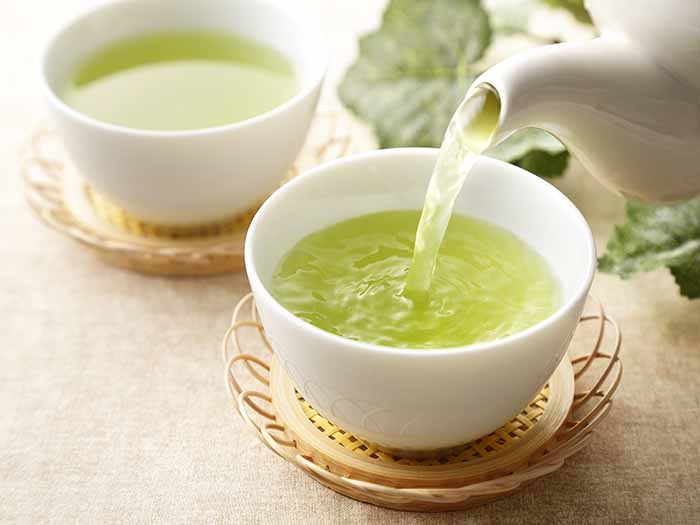Drinking matula tea is an excellent way to boost your gastrointestinal health by leveraging ancient traditional knowledge from indigenous tribes in Africa.
What is Matula Tea?
Matula tea is a strong herbal beverage that is brewed with a mixture of plants from the southern regions of Africa. While the ingredients may change depending on individual preparations, the common components of this tea are wild garlic, guava leaf, olive leaf, Syzygium Cordathus, licorice, rooibos tea, Artemesia Afra, and Cyclopia Intermedia. As a blend, this tea has been used for centuries in different African tribes to soothe a number of health concerns, particularly those related to the stomach, such as ulcers and indigestion. [1] [2]
There is no caffeine in this tea, and the taste is decidedly earthy, similar to an unsweetened green tea, but when you add natural sweeteners, it is definitely palatable.

Freshly brewed tea being poured in a cup Photo Credit: Shutterstock
How to Make Matula Tea?
If you want to make your own matula tea at home, you can prepare a mixture of those herbs and plants mentioned above, although buying pre-packaged matula leaves or powder is highly recommended. Take a look at the recipe below.

Matula Tea Recipe for Acidity
Ingredients
- 2 cups of water
- 2 tsp of dried matula leaves (powdered)
- 1 tsp honey (optional)
Instructions
- To make Matula tea, bring a saucepan of water to boil.
- Add 1-2 teaspoons of dried matula leaves (powdered) to a tea infuser/teapot.
- Pour over the hot water and allow the mixture to steep for 4-5 minutes.
- Strain out the powder/leaves and add honey or another natural sweetener, if desired.
Matula Tea for H. pylori?
Many people claim that the active ingredients in this tea are able to neutralize H. pylori to a very high degree – more than 90% elimination. This bacteria is very common, and while additional research is needed, the early reports show that this tea is an excellent remedy for this bacterium. [3]
Matula Tea Side Effects
There are some side effects of this tea, namely bloating and nausea, in rare cases.
